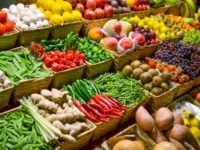
Australian Organic Limited, the nation’s core industry organisation for organic products, is calling on consumers to pay attention to the official Bud certification logo on authentic organic goods.
Drawing attention to the logo, which certifies that a product has undergone significant testing to ensure the authenticity of its claim to organic status, is part of the key focus issue during this year’s Australian Organic Awareness Month (AOAM).
The event will celebrate the strong performance of the industry this year despite the setback of the coronavirus pandemic, while at the same time highlighting the issue of false claims on non-certified product packaging.
The organisation has been working with authorities for more than a year to advance efforts to mandate clarity and regulation in terms of Australia’s export laws, to the benefit of agricultural producers with the field. Proper governance in the industry would serve to align Australia’s organics product with international standards.
“At the moment being certified organic within Australia is a voluntary process,” said Australian Organic Limited CEO Niki Ford. “However any producer or manufacturer can claim a product is organic on its packaging with as little as one ingredient being from organic origins. Enforcing domestic regulation around this word will give producers, manufacturers and consumers much greater clarity that a product has been rigorously audited against a high-quality standard.”
“Each export market requires proof an Australian organic product meets their own country’s organic standard,” added Toowoomba-based Arcadian Organic & Natural Meat Co chief Paul da Silva. “This is a fundamental requirement for market access. However, lack of regulation means we often can’t have equivalence with standards in other markets. This forces us and other exporters to go through the full process of getting certification in each separate export market. As we export to nine different countries, this can cost thousands of dollars and countless hours per country.”
“The demand for organic is still very strong – even during the uncertainties of 2020,” he added. “This is a big export opportunity for Australia being hampered by red tape.”
Australia’s organics industry is currently worth $2.6 billion, a figure that increases annually.












